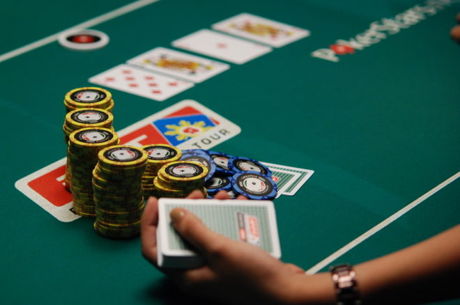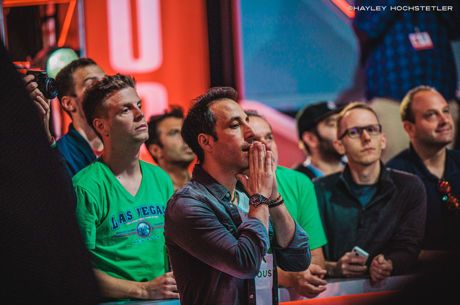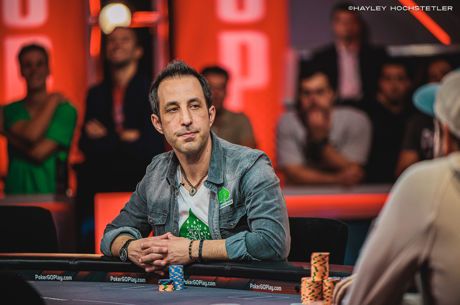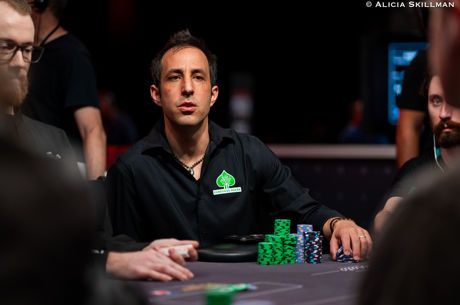"Ace" Speaks Live (2): Moving in in tournaments
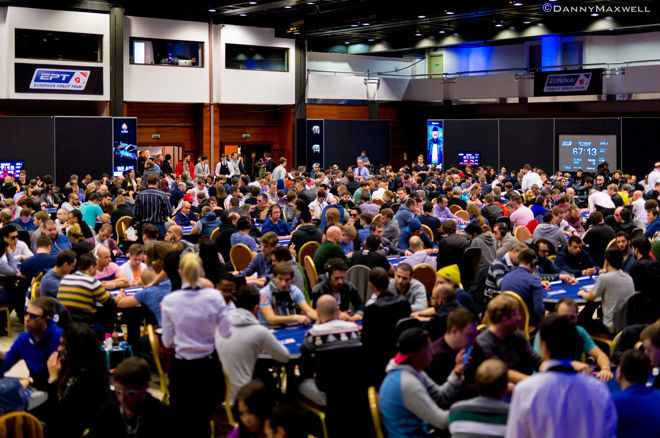
In the first article in the "Ace Speaks Live" series on this site, I have discussed the pros and cons of moving in early in cash games. To be more specific, I discussed the merits of a play that is often frowned upon, the all-in move, in some of my favorite cash games (most notably pot-limit Omaha). Because I am a prime example of the people who have used this shortstack/move-in-early strategy in a very profitable manner, it seemed fair to show why exactly this strategy can be very successful. After all, the strategy is in direct contrast with the adage "the best players should always have the largest stacks, so they can break their opponents in one single hand".
In tournaments, this move-in-early trend is even more visible than in money play. In tournaments, there is a large number of young players who don't play the way the old-school players do (who prefer standard bets and raises over overbets and all-in moves, and who like to be able to make decisions on all streets rather than just before and on the flop). This new breed type of player has a somewhat different philosophy. They will simply move in their entire stacks when in their opinion the situation warrants it. This way, they will not second-guess themselves, they will have no more headache, and they put their opponents to the test there and then. And it needs to be said that this strategy can cause the good, 'old-school' type of player a lot of problems. Today, I will discuss some of the pros and cons of this move-in strategy in the most popular tournament game: no-limit hold'em.
Moving in: Cons
- Sometimes the people who use a move-in-early approach are just being silly. In freeze-out events, whenever the blinds are small in relation to the average stack size, moving in for all your money is just plain ridiculous. If your opponents are anything but total idiots, they will know that you won't increase your stack size much, even if you win the blinds three or four times in a row. They will only call you with a true premium hand (most likely aces, because in this situation some people might not even call you with quality hands like kings, queens or AK - simply because they want to avoid going broke in one big pot, or by chance running into aces). So, you will win small change a couple of times in a row, but then when you do get called, you will probably be a massive underdog for your entire stack. It should be clear that this is not the optimum way to play tournaments.
- If you are someone who moves in frequently, your opponents will adjust to that. They will start focusing on snapping you off, as they will try to get themselves in situations where they are a huge favorite to double up. Of course, if you are someone who recognizes this pattern and who is capable of making the proper adjustments when it seems your opponents may be trying to trap you, well then this might not be much of a problem. But the fact is that most people who move in often are not capable of making these adjustments, and sooner or later will fall for the trap that is set by one of the better players.
- A large part of winning tournament strategy is trying to accumulate chips with relatively little risk, by stealing a few small pots when no one seems to hold much. Those who frequently overbet the pot will often find themselves in situations where if they get called they may be out of the event, whereas if they do win the pot with this massive bet, they may have won it just as well with a substantially lower wager. In fact, some of the best tournament players are known to take stabs at pots when it seems likely that no one has much, to then give up immediately whenever they run into resistance. A strategy that involves massive overbets is in direct contrast with this winning strategy of some of the best pros.
- By moving in early for your entire stack, you fail to take advantage of the information that you get from checks / bets / habits / tendencies of your opponents. If you are a good player, you will want to have to face as many decisions as possible - or, better, you want your opponents to face as many decisions as possible. By simply moving in whenever you think the situation is right, you don't use the information that you may have gotten by waiting some more and / or by putting less of your chips at risk.
Moving in: Pros
From what is written above, it seems as if this aggressive "move-in-early-and-often" strategy is simply a bad one. But this may not necessarily be the case, because this tactic does have some merits as well:
- You cannot get outplayed by the pros. If you are someone who is not as good as some of the best tournament stars, you can rest assured that they won't like your all-or-nothing type of game. The reason is simple: If you often move in early, you will be putting them to the test, and unless they hold the current nuts they will be at least a little scared about putting in their chips. This is for the simple fact that good players usually don't like to call for their entire stack, because there is almost always at least some chance that they will bust out. Most top tournament players prefer to play for small pots, and even though they will sometimes bet or raise with everything that they have, they are usually not that eager to call for their entire stack. Combined with the fact that in no-limit hold'em it is not that easy to find a hand you can comfortably make a stand with (even an AK all-in before the flop will lose a relatively large percentage of the time even against a random hand), it should be obvious that you hold an excellent counter-strategy to negate some of your opponents' superior skills.
- If you get lucky in one or two pots, you may suddenly be the chip leader of the event. Now, if from there you can continue to bully your opponents because of the size of your stack, they might not be willing to mess with you, and if you don't run into any monster hands, you may actually be well positioned to win the tourney - despite the fact that some of your opponents are in fact better players.
- You will be playing a headache-free style of poker that should allow you to win lots of pots uncontested. If you routinely make the types of bets and raises that most pros recommend (say, raises of three or four times the big blind, or bets of slightly less than the pot), then sooner or later someone will come over the top of you, and often you will have to release simply because you don't have the strength that you were representing. In fact, you will occasionally be folding the best hand, like when someone comes over the top of you without any kind of big hand - someone who knows that most likely you will not be able to stand the heat, and that you will probably have to release because of the strength he has shown. Had you moved in your entire stack to begin with, your opponent would not have had the luxury of this possible 'resteal' or 'rebluff'. He would have had only one option: Calling your large bet, hoping that on the river he will indeed have the winning hand - and there are only few hands strong enough to call in this situation.
Some final words
In tournament play, it is often the highly aggressive players who will end up in the top three spots, especially in events that have a relatively fast structure and / or rapid limit increases. My guess is that the people who play this 'simple' style of poker may indeed need to get lucky on one or two occasions to get a good result, whereas the true pros might need a bit less luck than they do. But this does not mean that these move-in-early players are automatically using an inferior strategy. In fact, they may very well be using a strategy that will help them keep out of trouble more often than not, and that may help them avoid getting outplayed by the better players.


